
6 Benefits of Visualization for Swimmers
Wondering what visualization can do for your swimming? Here are some evidence-based benefits of visualization for swimmers for more confidence, less choking, and even better technique.
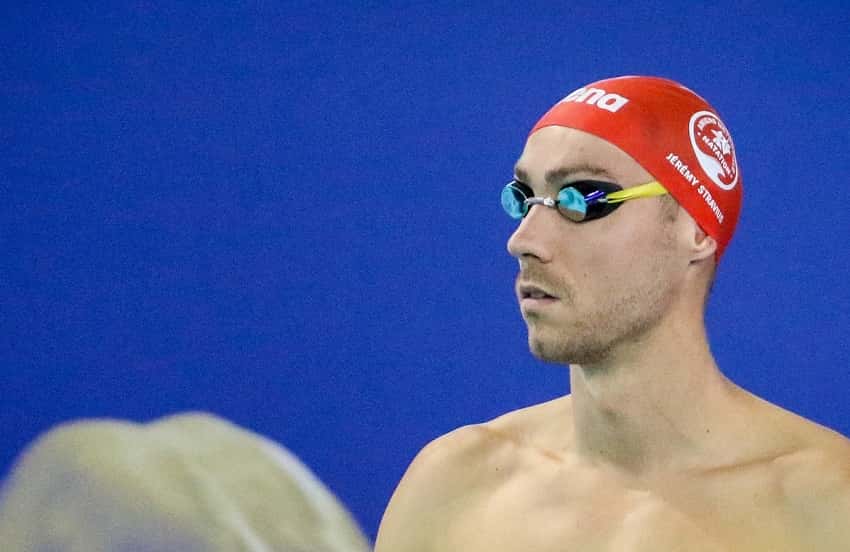
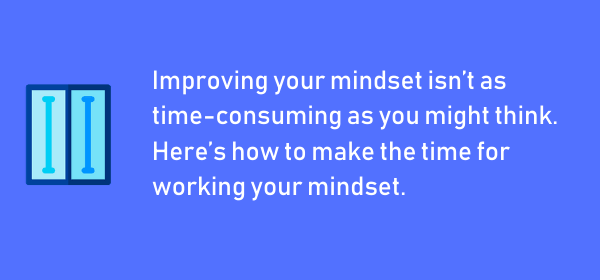
I don’t have enough time. I don’t know where to start. It all looks confusing. Also, I still don’t have enough time.
Hey, I get it.
You are busy.
The swim practices, the commutes, the relentless eating.
It adds up.
Certainly doesn’t leave much room or motivation to spend more time on training.
But improving your mindset, and by extension, your swimming, doesn’t require a massive investment of time.
Here’s how you can make enough time to work your mindset.
Mental training skills and sharpening your mindset is relatively new to the sporting world.
As athletes and coaches come to a deeper understanding of how to physiologically prepare an athlete for peak performance, attention is being drawn more and more towards what is going on underneath the swim cap.
And while a lot of swimmers will assume that mental skills are for high-performance swimmers or for the proverbial head case, having a better mental approach to the sport helps you enjoy the process.
You develop a healthier, more meaningful relationship with the sport.
How much time do you spend staring at your phone?
It’s likely the first thing you check between the pool and the locker room, you take it with you when you go to the bathroom, and it’s where you turn when commercials, boredom, or a line-up hit.
The options here are wide-open.
Our smartphone is powerful at sucking up our time. May as well put that bad boy to work for our goals and our mindset.
Mental skills look confusing and overwhelming.
You know that mental toughness is important, but where to start? Goal setting? Visualization? Self-talk? Performance cues? Pain and emotion management?
None are overnight fixes.
Tackling them without piece-mealing in the same way you would with any form of training means you will get frustrated.
Having clarity about what you want to improve and which skills you are going to use requires some front-end effort. But once you have your mini-routine in place, all that’s required is putting in the daily reps.
Put together a simple routine of the things you want to work on. The routine should take no longer than ten minutes to complete.
Here’s a sample way you could break it down:
This ten-minute routine checks a lot of boxes: You focus on the things that matter. Prep yourself for the pressure of competition. Sharpen your mental toughness. Give yourself perspective with evaluation. Build self-confidence.
That’s a lot of awesome for just ten minutes.
“But, but, Olivier, bruh… I’m super ambitious. I’ve got massive goals and there’s a million things I want to improve right now. Ten minutes a day isn’t going to cut it.”
Yes, it will.
Especially if you have never spent time working your mental skills. The goal should be making it a daily practice. The goal is putting in the reps. And accumulating the reps starts with a manageable and sustainable first step.
Making your daily dose of mental awesome a habit requires starting small.
Starting so small, in fact, that it’s almost impossible to say no or “I don’t have time.”
You might not have an extra hour, or two hours, but I can bet you can find ten minutes.
Do you keep a logbook? How about a journal?
Journaling is one of my favorite ways to improve performance between the lane ropes and between the ears.
Writing out your fears and anxieties puts them in perspective. Writing out your journey gives your goals texture. And writing out your workouts helps you move on from them.
Caeleb Dressel is well-known for keeping extensive and detailed logbooks. But it’s not just the moments of brilliance that he journals. Dressel writes out the bad practices too.
Putting pen to paper allows him to leverage the good workouts and expunge the bad ones. Once it’s on paper, it’s out of his head, and he can move on to the next workout without dwelling.
When was the last time you did an audit of your schedule?
You might be surprised to find how much time you have. Even though the number of hours in a day remains fixed, and the training schedules of swimmers haven’t really changed, athletes are somehow able to find more and more time to spend on social media.
An informal study of 2,000 collegiate student athletes in the United States revealed that 69% spend at least an hour a day on social media [1]. This was up from 43% from just two years earlier [2].
Which invites the question:
What is more important to you and more likely to bring you satisfaction, scrolling through feeds or spending a few minutes a day to better yourself and your swimming?
Be honest about your social media and smartphone habits. See what it’s costing you in opportunities and improvement.
Every swimmer has 24-hours to their disposal each day. Swimming better is rarely about getting more opportunities to improve.
Improving faster than getting towed across the pool by five teammates is all about making the most of the limited opportunities we have each day.
Sit down and look at your schedule and routines. Be honest about your social media habits. Think deeply on what you could improve with daily attention.
Can you carve out a measly ten minutes a day to invest into your mindset? Can you put together a small routine that targets what you want to improve?
If you are fed up with choking at the big meet, if you are tired of having self-confidence that bounces like a water polo ball, and if you are frustrated with not being confident under pressure, you can find the time.
This Mental Training Workbook Will Help You Swim Like a Rock Star This Season. Confused about mental training? Want to unleash pro mode on your swimming this year? Learn how this mental training workbook will change your mindset and help you pummel your PB’s this season.
Why You Should Be Grading Your Effort After Practice. One of my favorite ways to stay consistent and accountable in practice is this simple technique. Takes about three seconds, and will keep you honest about the effort in the water.

Olivier Poirier-Leroy Olivier Poirier-Leroy is the founder of YourSwimLog.com. He is an author, former national level swimmer, two-time Olympic Trials qualifier, and swim coach.
✅ Free shipping on Orders over $49
✅ Price Match Guarantee
✅ Best selection of gear for training and competition
✅ Fast and Easy Returns

“This is the best book I have ever seen concerning mental training.” — Ray Benecki, Head Coach, The FISH Swim Team


Wondering what visualization can do for your swimming? Here are some evidence-based benefits of visualization for swimmers for more confidence, less choking, and even better technique.

Ready to uncork some best times at your next swim meet? Here’s what you need to know to prepare for a swim meet.

The right mental skills can help you unlock faster swimming on race day. Here is a look at the right skills to use for competition.
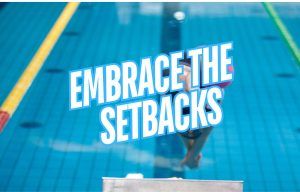
Frustrated with setbacks in the pool? Here are some tips for improving your ability to embrace setbacks and swim faster.
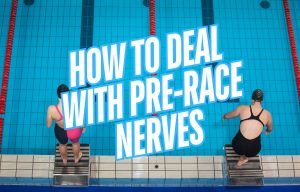
Struggling to swim fast under pressure? Here are some tips for how to manage pre-race nerves on race day.
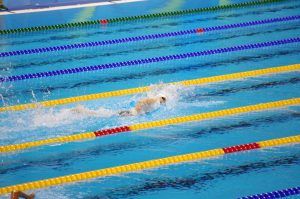
Swimmers often find themselves stuck with doubt when it comes to doing tough things in the water. Here’s a simple question to ask when you find doubt and uncertainty stopping you from excellence.
SITE
SHOP
GUIDES

LANE 6 PUBLISHING LLC © 2012-2025
Join 33,000+ swimmers and swim coaches learning what it takes to swim faster.
Technique tips, training research, mental training skills, and lessons and advice from the best swimmers and coaches on the planet.
No Spam, Ever. Unsubscribe anytime.
